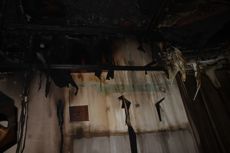A political delegation from the United Nations’ (UN) Department of Political Affairs (DPA) will arrive in Male’ next week to discuss the Maldives’ current efforts at judicial reform as part of its ongoing democratic transition.
The delegation, headed by UN Assistant Secretary-General Oscar Fernandez-Taranco, will meet with government officials, opposition leaders and civil society representatives. Revolving around the current situation the Maldives, discussions aim to identify opportunities to support democratic growth.
In November last year UN High Commissioner for Human Rights Navi Pillay visited the Maldives and said the country had made “significant advances” during the first few years of its transition, but a gap still existed between the rhetoric and the reality on the ground.
The Commonwealth has also pledged to assist the island nation in its efforts towards judicial reform, while British Under Secretary of State for Foreign Affairs, Alistair Burt, is holding discussions with President Mohamed Nasheed to resolve the current stalemate.
“Although the [Maldives’] judiciary is constitutionally independent, the sitting judges are under qualified, often corrupt and hostile to the democratically elected regime,” said MP John Glen of Prime Minister David Cameron’s ruling Conservative party.
Glen further called on the House Leader to “urgently make time for a debate on judicial reform in the Maldives,” reads a press statement.
Leader of the House of Commons and Conservative Party MP George Young pointed out that the British High Commission in Colombo is involved. “We want to help Maldives to make progress towards democratic reform in the direction that my friend John Glen outlines,” he said.
The Maldives formally requested international legal assistance from the UN Human Rights Commission on January 22. Last year, ruling Maldivian Democratic Party (MDP) also appealed for international intervention in what it considered an “increasingly blatant collusion between politicians loyal to the former autocratic President, Maumoon Abdul Gayoom, and senior members of the judiciary.”
The Maldives government initiated a judicial standoff on January 16 when it ordered the military to arrest Criminal Court Chief Judge Abdulla Mohamed after he filed a High Court injunction against his police summons.
Allegations against Judge Mohamed date back to 2005 and include misogyny, sexual deviancy, throwing out an assault case despite the confession of the accused, political bias, obstruction of police duty, disregarding decisions of high courts, deliberately holding up cases involving opposition figures, barring media from corruption trials, ordering the release of suspects detained for serious crimes without a single hearing, maintaining “suspicious ties” with family members of convicts sentenced for dangerous crimes, and releasing a murder suspect “in the name of holding ministers accountable” who went on to kill another victim.
In one instance Abdulla Mohamed was accused of requesting that two underage victims of sexual assault act out their attack in court, in front of the perpetrator.
The judge had previously been under investigation by the Judicial Services Commission (JSC), but had successfully sought an injunction from the Civil Court against his further investigation by the judicial watchdog.
The JSC itself has itself been accused of perjury, embezzlement and corruption – by one of its own members.
The ongoing detention of the judge has polarised public opinion in the Maldives, resulting in three weeks of opposition-led protests which draw crowds of 200 to 400 nightly on Male’ calling for the judge’s freedom and the downfall of the government. Several police officers and protesters have been injured during the protests and a number of journalists have been the victims of targeted attacks.
In addition, a few government buildings and private property belonging to government officials have been damaged.
Protest leaders have pledged to continue the demonstrations until an “even stronger” protest on February 24. Meanwhile, MDP has gathered regularly at its party camp where activists have occasionally urged party members to “go out and confront the opposition”. No such order has officially been given, however MDP has asked party supporters to come to Male’ from surrounding islands for a demonstration on February 17.

